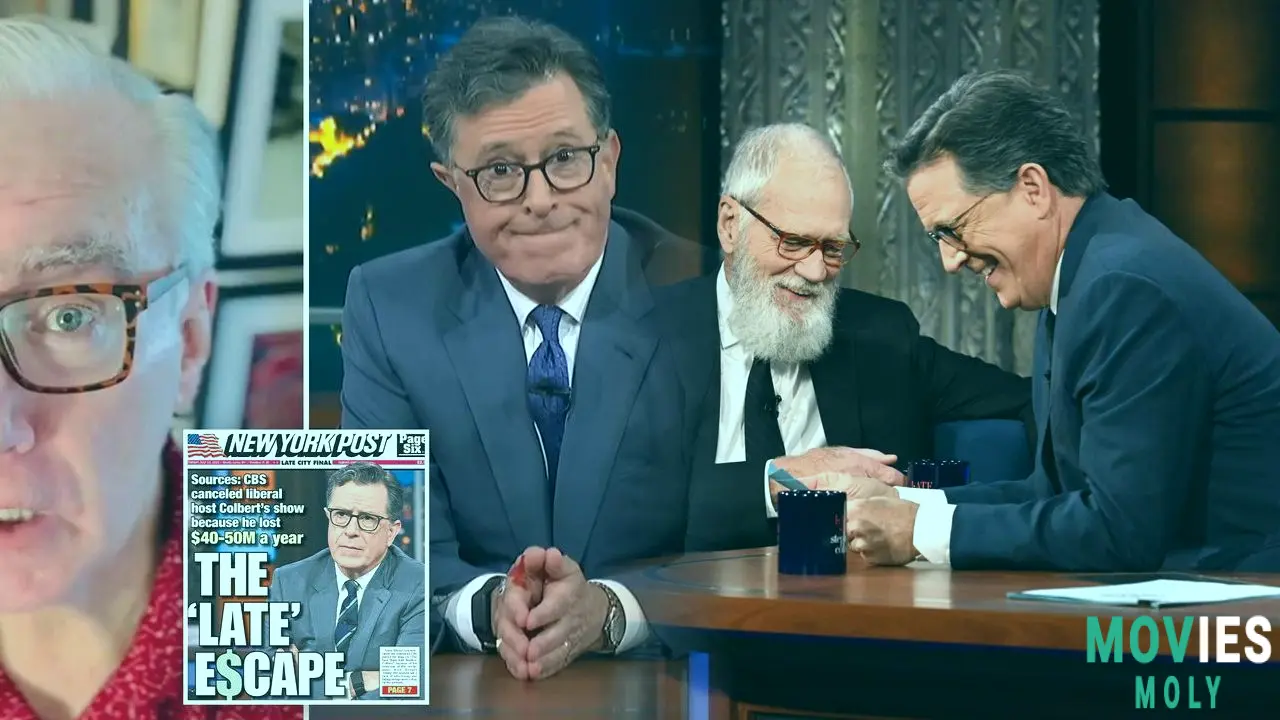The announcement that CBS has canceled The Late Show with Stephen Colbert has caused a stir in the entertainment world and spurred a lot of talk about what will happen to late-night TV in the future. CBS says the decision was based on money, but the timing has led many to wonder if politics are involved. This event also makes it very clear how much of an impact people like Jon Stewart have had on comedians and fans alike. His style of political satire influenced a generation.
The Shockwaves That Followed Stephen Colbert's Late Show EndingCBS said that The Late Show with Stephen Colbert would cease in May 2026. Colbert has been the host of the show for nearly 30 years, and it has been a staple of late-night television since 2015. The network said the cancellation was "purely a financial decision against a difficult backdrop in late night." Colbert aggressively slammed Paramount, CBS's parent company, for a $16 million settlement with Donald Trump just a few days before this news came out.
Trump sued over a 60 Minutes interview with Kamala Harris, which led to the settlement. Colbert labeled the payment a "big fat bribe," which is interesting because it has to do with Paramount's $8 billion merger with Skydance Media, which the Trump government has to approve. Politicians and commentators have speculated that the cancelation might be politically driven because of this relationship, even though CBS has denied it.
The Debate: Money Problems vs. Political Motives
For years, late-night TV has had fewer viewers and less ad money, which makes the business model hard to work. Some experts agree that the financial problems are real. For example, The Late Show is said to lose about $40 million a year, even though it is the highest-rated late-night show on broadcast networks. But the fact that the show was canceled so quickly after Colbert's harsh comments has raised some suspicions.
Senators Elizabeth Warren and Adam Schiff, both Democrats, have publicly questioned the rationale behind the decision, saying that Americans have a right to know if politics were involved. Senator Ron Wyden and others are also looking into a possible "side deal" between Skydance and Trump that has to do with the Paramount settlement. David Letterman, who used to host The Late Show and has been critical of CBS in the past, gently stepped in by publishing a 20-minute video featuring his previous segments making fun of the network with the title "You can't spell CBS without BS."
Keith Olbermann, who used to host MSNBC, on the other hand, said that rumors of political motivation were not true. He said that if CBS wanted to quiet Colbert, they would not keep him on the air until May 2026.
People are talking about Stephen Colbert's cancellation, but Jon Stewart's shadow is still very much there when it comes to late-night political comedy. #JonStewart #Colbert #LateNightTV
Jon Stewart: The Man Who Made Political Satire What It Is Today
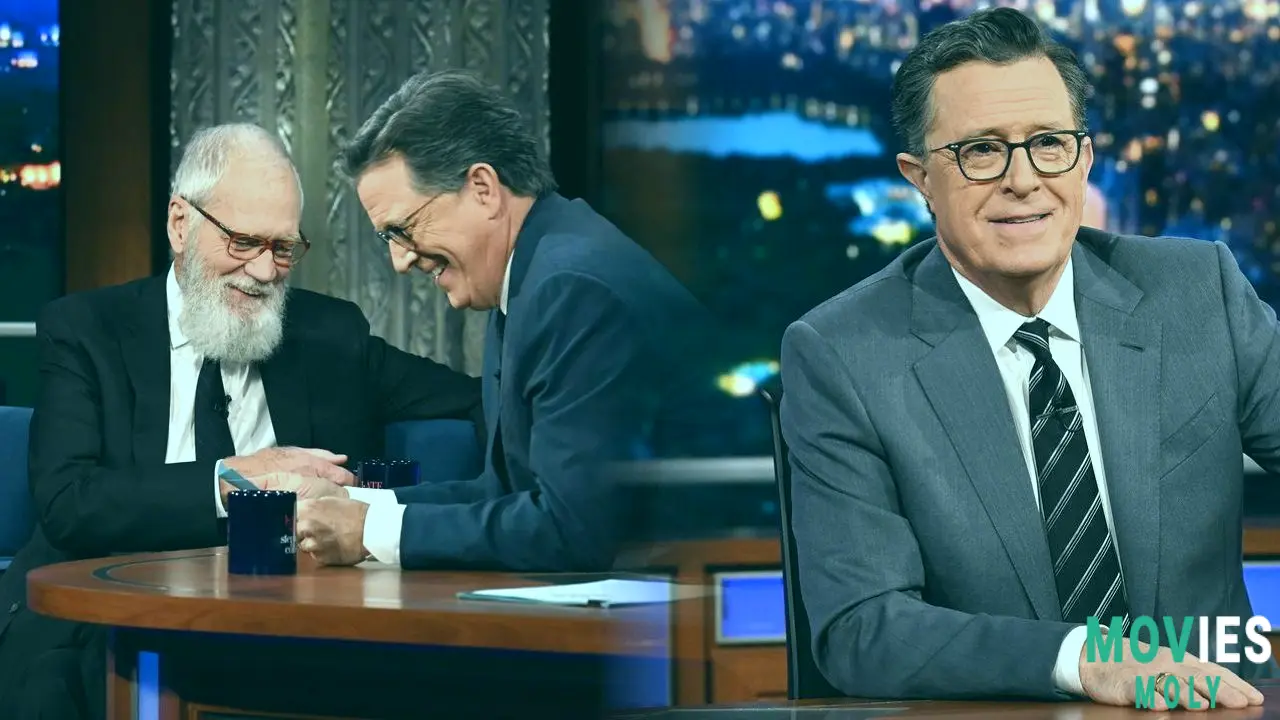
Jon Stewart changed political satire forever when he hosted Comedy Central's The Daily Show from 1999 to 2015. This was long before Stephen Colbert took over The Late Show. Stewart turned the show into a cultural force by mixing funny jokes with sharp political commentary and media critique. He made a place where comedy was more than just funny; it was also a reliable source of news and insight for many people, especially younger ones.
Stewart's sharp interviews and monologues regularly put politicians and media people on the spot, demanding accountability and clarification. His work on the health bill for 9/11 first responders showed how satirical comedy may change the way people talk about policy. This method set a new norm for late-night TV and encouraged a whole generation of comedians and journalists to mix news with fun.
A Look at Stewart and Colbert Side by Side: The Daily Show and the Late Show
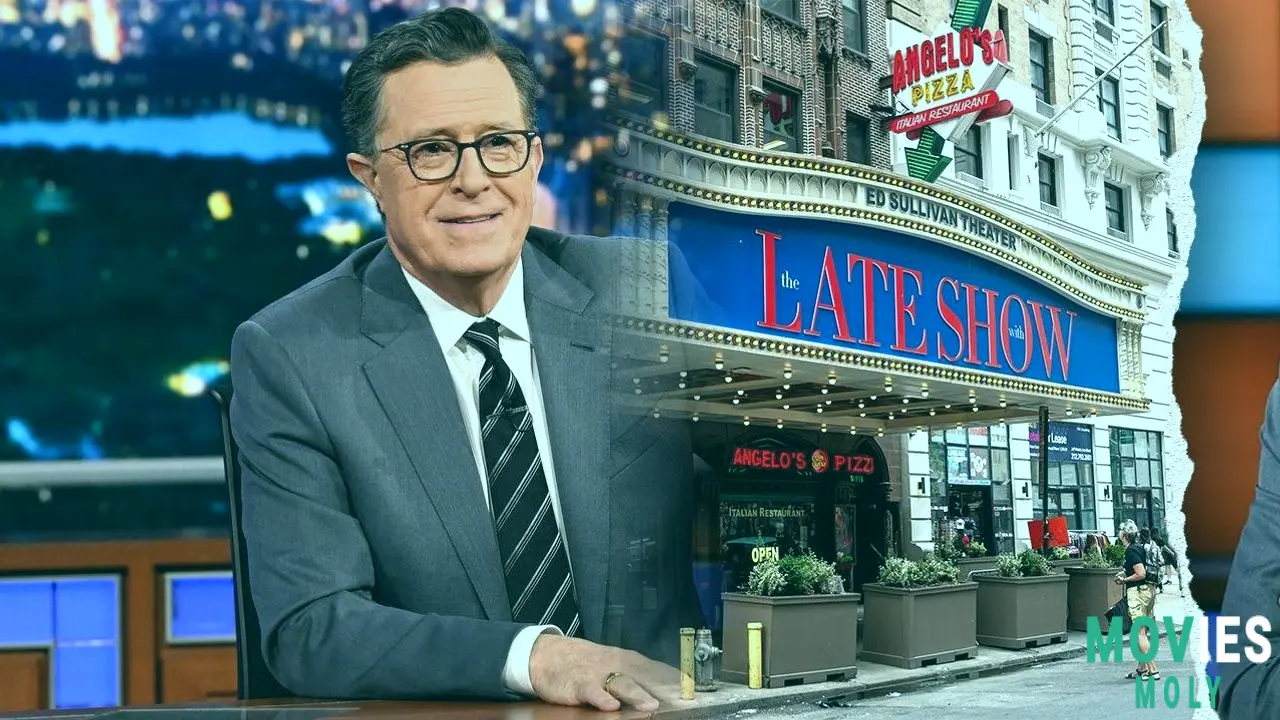
Stephen Colbert was a main correspondent on The Daily Show with Jon Stewart. He created his character as a "well-intentioned, poorly informed, high-status idiot" who made fun of conservative pundits. This character was the basis for his spin-off, The Colbert Report, which made him even more famous in the world of political comedy.
Stewart often sent clear, left-leaning signals, while Colbert's sarcastic nature let him take a more ambiguous, deadpan approach. Some studies say this let people on both sides of the political spectrum see things differently. Colbert changed his hosting style when he joined to The Late Show. He stopped doing character-driven comedy and started doing more direct, politically charged hosting, following in Stewart's footsteps as a political commentator.
Is late-night TV going away or just changing? The cancelation of The Colbert Show shows the financial and political problems that Jon Stewart dealt with for years. #PoliticalComedy #FutureOfTV
The Business Behind the Banter: How Corporations Affect Late Night TV
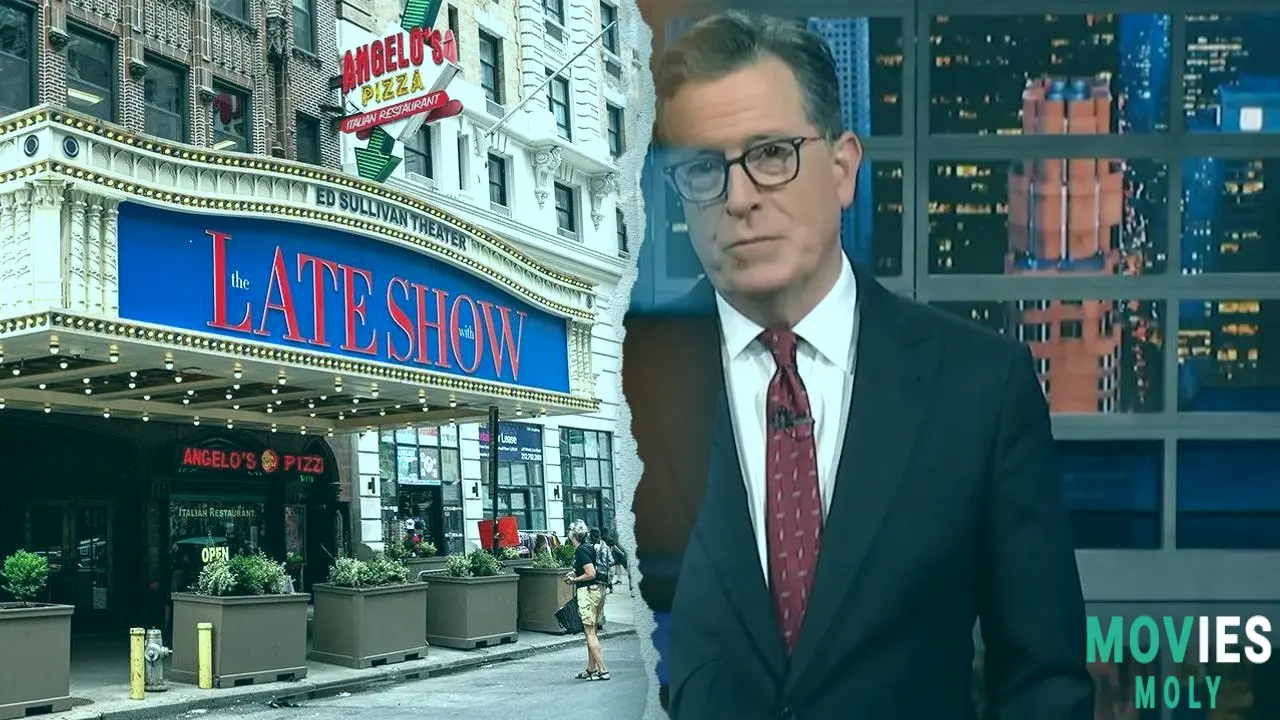
The end of The Late Show shows that there are bigger problems with the way traditional late-night TV works. Linear TV viewership has been progressively dropping, and streaming services are now more popular than traditional broadcast and cable TV. Because of this change, late-night shows have seen big losses in advertising revenue. Networks have trimmed costs in response, including NBC cutting The Tonight Show down to four evenings a week and Late Night With Seth Meyers doing rid of its live band.
The combination between Paramount and Skydance makes things even more complicated. People are worried about how much power corporations have over editorial decisions because of the $8 billion transaction that needs Trump's approval. Lawmakers are looking into the $16 million settlement with Trump, which came just before the news of the merger's cancellation, as a possible way to help the merger go more smoothly.
How Stewart Affected John Oliver and the Next Generation
Jon Stewart has had an effect on more than just Colbert. John Oliver, another former Daily Show host, is an example of a comedian who has made a successful career by building on Stewart's style of in-depth, satirical journalism. Oliver's Last Week Tonight on HBO is a great example of how mixing humor with investigative reporting can work in a different format, getting good reviews and a loyal following. Stewart's influence can still be seen in today's politically aware comedy, when hosts are expected to do more than just tell jokes.
Rob Schneider's View: Comedians and Controversy
Rob Schneider, a comedian known for his conservative views, also spoke out about the cancelation. Schneider said that Colbert's show failed because of its "narcissistically political" tone, which turned off half the country. He said that humor shouldn't be "too narcissistically political" and that late-night shows are going away because people are altering how they watch TV. Schneider's statements show that there is still a debate in comedy about how to reach a wider audience and what political views to hold.
The time of important political discussion is facing new challenges, from "Daily Show" to "Late Show." Jon Stewart's legacy is more important than ever. #MediaAnalysis #StephenColbert
Anderson Cooper and the Crossover Between News and Comedy
Over the past 20 years, the distinctions between news and comedy have become much less clear. Jon Stewart's Daily Show had a big impact on this development. Anderson Cooper and other well-known people have been on satirical news shows, and politicians and journalists often appear on late-night talk shows. This crossover highlights how comedy programs have become a major source of political news and commentary for many people, often giving a more critical view than regular news sources. This integration was made possible by Stewart's ability to make powerful people accountable through humor.
The "why" behind the termination of Stephen Colbert's show shows deeper truths about how politics and corporate media work. What would Jon Stewart say? #CBS #Trump #LateNight
What's next? The Changing Face of Late Night Comedy
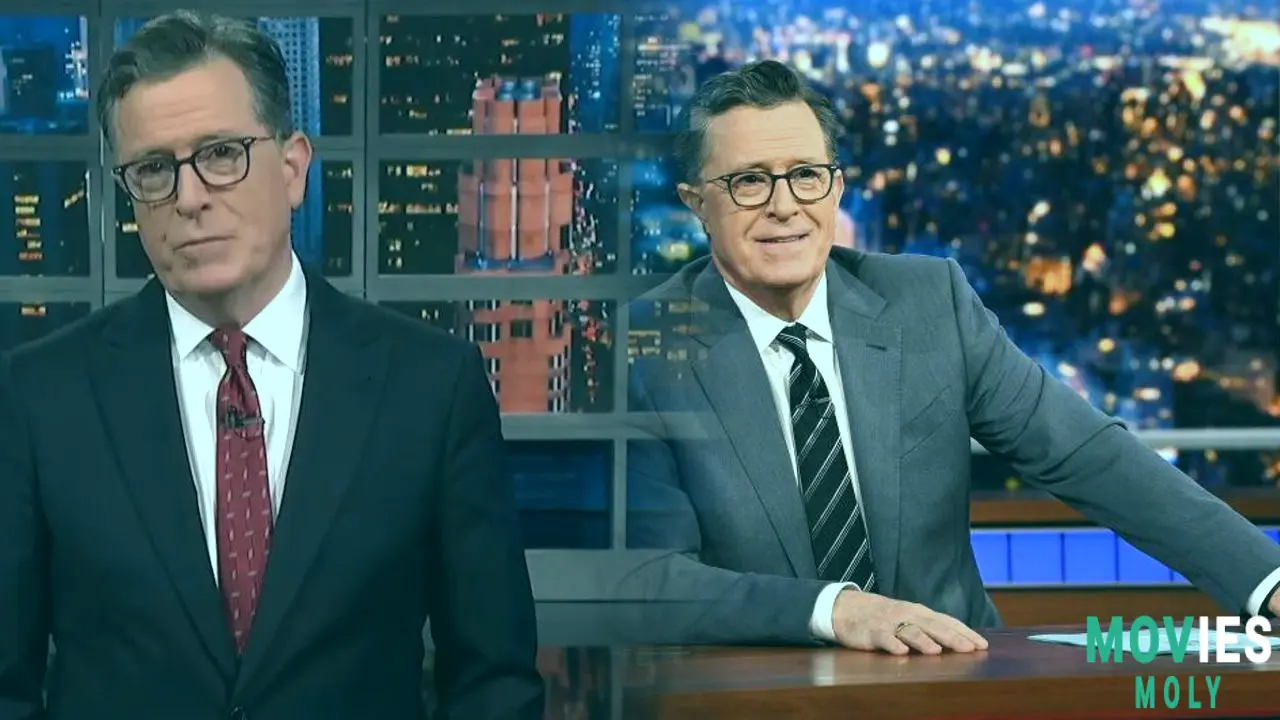
The end of The Late Show, a long-running show, is a symptom of a bigger change in late-night TV. The old way of doing things, which relied on broadcast networks and appointment viewing, is having a hard time competing with the huge amount of content accessible on streaming services and digital platforms like YouTube and TikTok. Viewers, especially younger ones, like shorter segments and content that they can watch on demand.
Getting used to the streaming age: new formats and audiences
It may be necessary for late-night shows to change to fit these changing viewing habits. Some shows already make parts just for going viral online. Is it possible for traditional late-night shows to keep up their high production value and cost? New discussion shows that are exclusively available online, such podcasts or low-budget video series, illustrate that people's expectations are changing. Traditional late-night shows may not go away completely, but they will probably keep changing, with hosts maybe trying out new platforms and methods to reach their fans.
To anticipate the future of late night, you need to know about Jon Stewart's breakthrough work. The news about Colbert is only the start. #JonStewartLegacy #ComedyNews
The conclusion of The Late Show with Stephen Colbert is more than just the end of a popular show. It is a moment that shows how hard it is for traditional TV to stay relevant, how complicated the relationship between media and politics is, and how important someone like Jon Stewart will always be. Stewart's revolutionary work in political satire made comedians seem like legitimate commentators, which changed the way people thought about hosts and what they expected from them. As late-night TV changes to meet the needs of its viewers and the economy, Stewart's work is still an important reference point for figuring out where comedy and commentary may go next.

